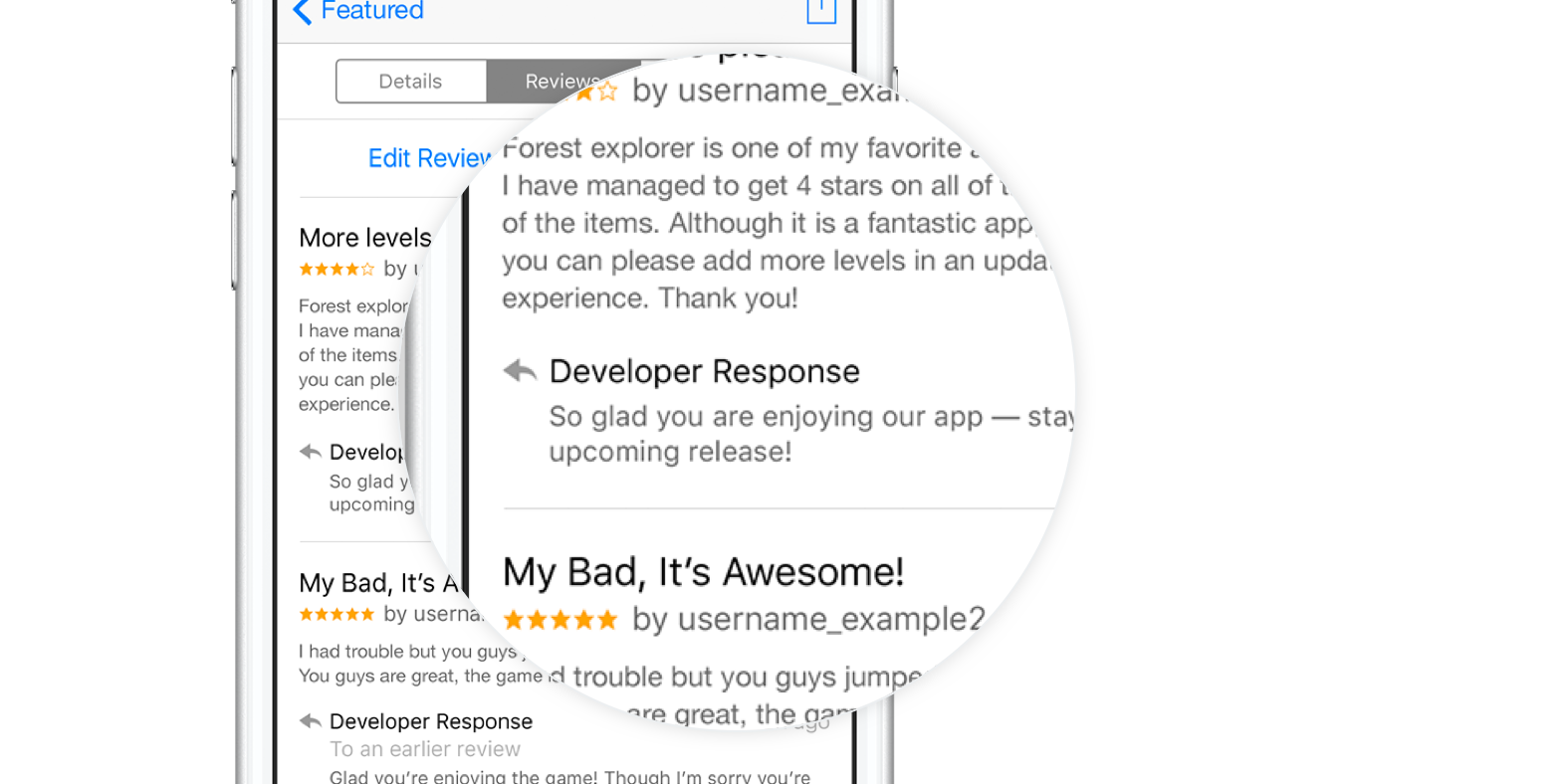App developers can now reply to user reviews on the Apple App Store. By leveraging replies, app developers can improve user experience and indirectly encourage users to update their negative reviews.
Reviews are important. They are one of few trust signals, helping users decide whether to download or buy a mobile app from the App Store. This is why reviews have been critical to an app developer’s app store optimization strategy.
Like any review system, there is a natural bias towards negative opinion. Users are more likely to write a review if their experience was negative, and less likely if their experience was mediocre. Writing a negative review is a strong signal to other users and may cause a mobile app to rank poorly on the App Store.
But, since the App Store launched in 2008, mobile app developers have been unable to reply to reviews. They have been unable to comment on negative experiences and unable to provide support to users that need help. Apple has not allowed app developers to reply to reviews, leaving app developers with no way to address concerns.
In contrast, Google Play has supported replies since 2013. App developers have been able to reply to reviews directly from the Google Play Developer Console, making a public response visible on the app detail page. This system allows Android developers the opportunity to address criticism or refer users to support and documentation. And that can only be positive for user experience.
App Store Review Replies
Apple acknowledges that app developers need a better way to interact with customers. In January, Apple announced that replies were coming soon. The new feature was finally shipped with iOS 10.3 last Monday, allowing app developers to write replies directly from iTunes Connect.
Apple has also produced a set of recommendations for app developers to use when replying to feedback on the App Store. Amongst the advice is the recommendation to reply quickly and in a consistent tone. Apple is encouraging app developers to leverage replies since they can improve user experience and a mobile app’s ranking on the App Store.
Replies can also encourage a user to update his or her review. When an app developer writes a reply, Apple automatically sends an email notification to the user. The email contains a link that says “Do you want to update your review?” and it allows the user to reply directly to the app developer.
iTunes Connect also allows app developers to filter reviews by country. This is useful when a mobile app is released to a new region since it allows app developers to focus their customer service efforts where it is most needed.
App Store Optimization and User Experience
Positive reviews are an important part of app store optimization. Good reviews can help with a mobile app’s rank on the App Store and can improve download conversions. The new replies system allows a user to change his or her review, so it important that app developers leverage the feature to keep their mobile apps ranking well.
But, more importantly, reviews are hugely important for user experience. By directly engaging with users when they share negative experiences, app developers can ensure that issues get addressed. A positive support experience encourages users to continue using a mobile app and may indirectly lead to positive reviews in the future.
Apple is also introducing other features in mobile apps and on the App Store. iOS 10.3 introduces a new API allowing mobile apps to solicit reviews directly from the app itself. This, combined with the replies feature, will greatly improve the user experience around ratings and reviews.
The changes to the reviews system are part of the drive to quality on the App Store. The release of iOS 10.3, along with Apple’s attack on app rot, highlight the desire to keep standards high. The replies system will surely improve user experience in the long term and app developers should look to leverage the new feature as soon as possible.

